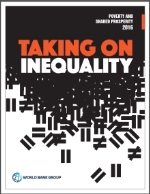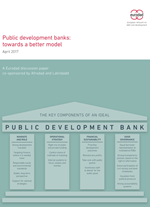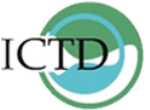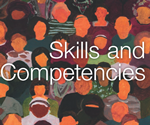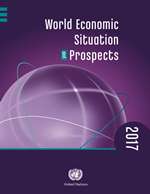Other news
Published on Thu, 2017-06-08 10:36
The United Nations Working Group on business and human rights has urged the Canadian government as well as the business sector to step up their efforts in addressing the adverse human rights impacts of their business activities, both at home and abroad, in particular in the extractives sector and other industries. At the end of its official ten-day visit to the country on 1 June, the UN Working Group on human rights and transnational corporations and other business enterprises also called for meaningful consultation with indigenous peoples in the context of business activities on their lands. |
Published on Wed, 2017-05-31 00:00
As climate change and neo-liberal economic policies wreak havoc by increasing the disease-burden in the poorest and developing countries, the newly-elected director-general of the World Health Organization (WHO), Dr Tedros Adhanom Ghebreyesus from Ethiopia, faces a herculean task in advancing his goal that "health is a rights issue" and "an end in itself." On Tuesday (23 May), Dr Tedros, a malaria expert, secured the distinction of being the first African candidate to be elected to the WHO's top job. He is also the first democratically-elected director-general through a secret ballot. Effectively, his election brought a paradigm shift by discarding the non-democratic approach of the WHO's Executive Board of 34 countries choosing the director-general (as hitherto). |
Published on Fri, 2017-05-26 15:06
Why is it so difficult to achieve meaningful coordination when everybody agrees that it is desirable, if not necessary? President Richard Nixon's withdrawal of the US from and hence termination of the Bretton Woods system in 1971 confirmed the end of the post-war Golden Age. This led to slower growth, greater volatility, more instability, and reduced progress in raising economic welfare, among other consequences. |
Published on Fri, 2017-05-12 15:37
The 17 Sustainable Development Goals (SDGs) - collectively drafted and then officially agreed to, at the highest level, by all Member States of the United Nations in September 2015 - involves specific targets to be achieved mainly by 2030. The Agenda seeks to "leave no-one behind" and claims roots in universal human rights. Thus, addressing inequalities and discrimination is central to the SDGs. "Poverty and Shared Prosperity 2016: Taking on Inequality" is the World Bank's first annual report tracking progress towards the two key SDGs on poverty and inequality. |
Published on Wed, 2017-04-19 17:58
Eurodad published a new report on public development banks, entitled "Public development banks: towards a better model". The report draws on a wide range of existing research and finds there are four main roles that public development banks (PDBs) can play to improve the impact of the financial sector on development. Public development banks (PDBs) are enjoying a resurgence. The global financial and economic crisis has stimulated new interest in PDBs, particularly given the important role they play in providing counter-cyclical financing when private capital is in short supply. In recent years, several countries have established new national and multilateral PDBs, and at the global level they have been recognised for the role they play in the United Nations Financing for Development process. |
Published on Wed, 2017-04-19 13:57
Last week the UN Committee of Experts on International Tax (UNTC) met at the United Nations HQ in New York, a few metres from the Security Council meetings on Syria, followed by a special session on tax of the Economic and Social Council (ECOSOC). The undercurrent of the detailed technical discussions during the week has been a crisis of global tax governance. While, for example, the grand-sounding Addis Tax Initiative included a commitment to double the aid for tax issues to developing countries, very little has come to the UNTC. |
Published on Wed, 2017-04-19 13:48
ICAE announces the ICAE Virtual seminar 2017 - on the topic of “The new Skills Agenda for Europe” The seminar is free of charge, open to anyone and will start on May 2nd. The webinar will take place next May 2nd at 14:00 (Brussels Time) in English language. |
Published on Wed, 2017-04-19 12:49
More than eight years after the global financial crisis exploded in late 2008, economic growth remains generally tepid, while ostensible recovery measures appear to have exacerbated income and other inequalities. Yet, despite the G-20 group of the world's largest economies raising the level, frequency and profile of its meetings, effective multilateral cooperation and coordination remains a distant dream. |
Published on Thu, 2017-04-13 18:44
The Sustainable Development Goals embody the world’s greatest aspirations for human health, education, equality, the economy, and the environment. Their realization relies on investment and cooperation among all stakeholders, including civil society, citizens, and the private sector. Yet at their core, the SDGs are a commitment by governments to strive to meet these critical objectives by 2030. |
Published on Fri, 2017-03-31 17:20
Investment in the least developed countries (LDCs) will need to rise by at least 11 per cent annually through 2030, a little more than the 8.9 per cent between 2010 and 2015, in order for them to achieve the Sustainable Development Goals (SDGs). The United Nations' World Economic Situation and Prospects (WESP) 2017 report focuses on the difficulties in securing sufficient financing for the SDGs given the global financial system and current economic environment. |
SUSCRIBE TO OUR NEWSLETTER




